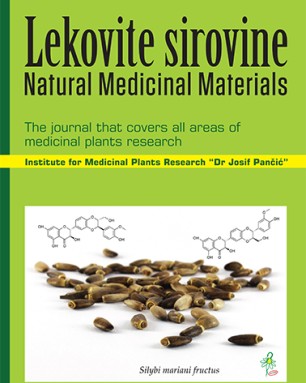Institute for Medical Research, Dr. Subotića, University of Belgrade , Belgrade , Serbia
This doctoral dissertation was focused on the optimization of the extraction parameters to achieve the maximum yield of phenolic compounds in the Urtica dioica L. leaf extracts. The extract with the highest content of phenolic compounds was tested in the model of experimental hypertension to determine its effects on oxidative and hemodynamic status, lipid profile, and biochemical parameters. It was shown that the most abundant phenolic compounds present in extracts of Urtica dioica L. were chlorogenic acid, 2-O-caffeoyl malic acid, and rutin. It was shown that aqueous-methanol is a better solvent for the extraction of phenolic compounds compared to aqueous-ethanol and water. Also, extracts prepared using ultrasound-assisted extraction technique had higher phenolic yields and antioxidant capacities than extracts obtained by maceration. The maximal content of phenolic compounds in the Urtica dioica L. leaf extracts was achieved by ultrasound-assisted extraction with 54% aqueous-methanol and 38 min extraction time. It was shown that the methanol percentage in the extraction solvent significantly affects phenolic yield, unlike the extraction time. Results of in vivo study showed that four-week long treatment with Urtica dioica L. leaf extract decreased arterial pressure and improved systemic oxidative status of spontaneously hypertensive rats, as well as the lipid status by increasing plasma HDL cholesterol and decreasing atherosclerosis-index.
This is an open access article distributed under the Creative Commons Attribution License which permits unrestricted use, distribution, and reproduction in any medium, provided the original work is properly cited.

The statements, opinions and data contained in the journal are solely those of the individual authors and contributors and not of the publisher and the editor(s). We stay neutral with regard to jurisdictional claims in published maps and institutional affiliations.